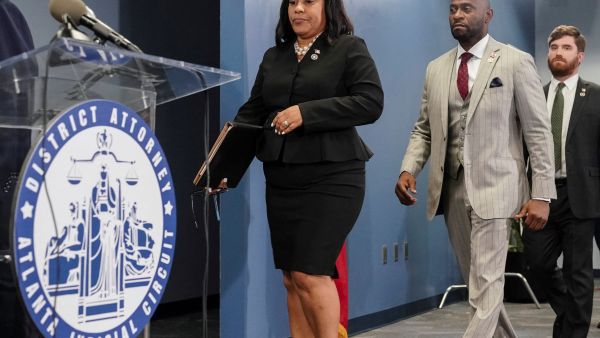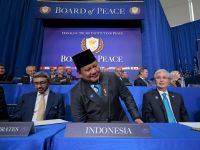Fulton County District Attorney Fani Willis is facing a challenge to her credibility and authority in the Georgia election interference case against former President Donald Trump and 18 other defendants.
Willis and Nathan Wade, a special prosecutor working on the case, have admitted to having a personal relationship that began after Wade was hired in November 2021. However, a former friend and co-worker of Willis, Robin Yeartie, testified on Thursday that she saw Willis and Wade hugging and kissing prior to November 2021, contradicting their statements.
The relationship between Willis and Wade has been raised as a potential conflict of interest by Mike Roman, a former Trump campaign staffer and one of the co-defendants in the case. Roman argues that Willis paid Wade large sums for his work and then benefited personally when he paid for vacations for the two of them. Roman is asking Fulton County Superior Court Judge Scott McAfee to toss out the indictment and to prevent Willis, Wade and their offices from continuing to be involved in the case.
Willis and Wade have denied any wrongdoing and have said their relationship did not affect their professional judgment or conduct. They have also said they shared travel expenses and never lived together. Willis, a Democrat who is up for reelection this year, has accused Roman and other Republicans of trying to cast doubt on the legitimacy of the case and to delay the trial.
The case accuses Trump and his allies of conspiring to overturn the 2020 presidential election results in Georgia by pressuring state officials, spreading false claims of fraud and inciting violence. The indictment, returned in August 2023, includes charges of racketeering, conspiracy, false statements, election fraud and obstruction of justice.
Judge McAfee is expected to rule on the motion to disqualify Willis and Wade after hearing arguments from both sides. The hearing, broadcast live, has the potential to dig into uncomfortable details of Willis and Wade’s relationship. McAfee has said he would try to minimize drama in his courtroom and to keep lawyers focused on the legal issues at hand.
The outcome of the hearing could have significant implications for the most sprawling of the four criminal cases against Trump. An additional delay would likely lessen the chance that a trial would be held before the November election, when Trump is expected to be the Republican nominee for president. At a separate hearing in New York on Thursday, a judge is expected to confirm whether Trump’s hush-money criminal case will go to trial next month, as scheduled.







